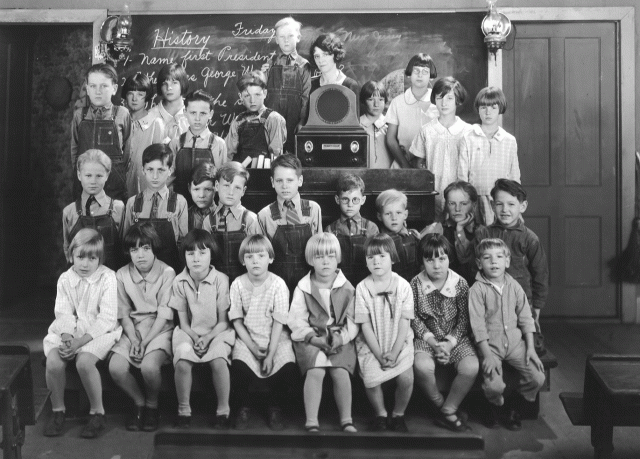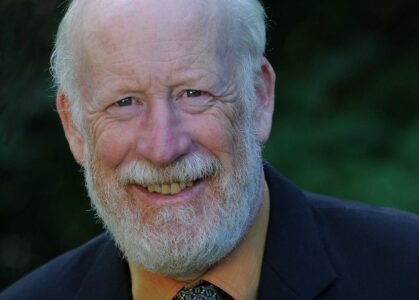Editorial: A school for mayors and councilors? Why not...
Have you ever thought of running for council? If so, would the fact that the job had a three year term or a four year term hold any sway over your decision?
One of the interesting aspects of municipal governments, particularly in small towns, is that they truly are made up of everyday folks. Career, professional politicians don’t generally get drawn into the oft-unglamorous world of the busy yet barely-paid local councilor or mayor. The people making the decisions in our city are simply that: local people making their best judgments on what’s best for their friends and neighbours. There’s much less disconnect in the political world when your representative lives two houses down the street, their kids go to the same school as your kids, and they’re your mountain bike/ski buddies. That’s a good thing as far as keeping the ethics of a governing body in line with the morals of the people it serves. And as we’ve seen on the provincial and federal level recently, that’s not always the case. At the recent UBCM conference, one of the items up for a vote was the issue of increasing municipal council terms from three years to four years in British Columbia. Facing a situation in which the arguments both for and against moving to four years had legitimate arguments, the recommendation was ultimately voted down and terms will remain at three years for the time being. Concerns that moving to four year terms might dissuade good people (and particularly younger, working residents) from seeking office won out over the potential benefits of such a change. Of course, the chief benefit in moving to four years was thought of as a remedy or boost to the fact that our councilors and mayors are not well-versed career politicians. It takes the first time councilor a period of time to get fully up to speed and working efficiently. In a three year term it’s possible that by the time they’ve figured out how best to utilize their position, their first term is already waning. Over a beer at the Eagles this week, I chatted with Rossland Mayor Greg Granstrom about this issue. “I was really on the fence on this one,” recalled Granstrom. “This is my second time on council, so it’ll be six years I’ve put in and I’m having a good time so if I wanted to go again well I’ll be 58 then and that’ll put me at 62 if I was in for four years. I’m retired after being in public service for thirty years. Would I run again if it was a four year term? I’m not sure. I did vote for it, though. I was really on the fence. There are benefits and negatives to both sides.” Among the chief arguments against moving to a four year term was that it would be a disincentive to younger people with full time jobs and families. Would a four year responsibility rather than three keep you out of serving your municipality? If someone truly had passion for being on council or serving as mayor, one would hope that an additional year of responsibility wouldn’t keep them from running for office. “Would it keep younger people out? I’m not sure that it would,” pondered Granstrom. “I mean if you have the passion, you’ll be in there whether it’s four years or ten years. How do you get the passion–that’s the question? There’s the age old question of, ‘why would I run if I can’t make a difference anyway’. Some people say they are busy, but, I mean, we’re all busy. I had a wife, job and family and you figure out a way to get it done.” So part of the equation seems to be not how long should a council’s term be and how that affects citizen participation, but rather how do we better engage and involve residents in the workings local government. One possible measure of how engaged a community is with its leadership could be the number of people who sign up to run for council. In Rossland’s last election in 2008, just nine people ran for six council seats and two people put their name in for mayor. “I’ve said it before, that part of the reason I ran for mayor last time was to give people a choice and make sure there was more than one name on the ballot,” added Granstrom. “I’d love to see the ballots full next time. Whether I’m running or not, that would be my crowning accomplishment as mayor to see the next ballot full of names.” Through the discussion, we thought about how a place like Rossland might come to a better solution. It does happen from time to time that residents with big ideas and big hopes get voted into council only to realize that some of the things they’d hope to achieve don’t fit with the role of councilor and Mayor. What if there was some type of council school where anyone who’s ever had the thought of running for council could come and learn about what the job entails? Such a school would help people get up to speed before the election even took place. Could we start off new councilors and mayors at full speed on day one to maximize their three year term? Maybe such a series of courses could become the “Rossland model” and something that could be passed on to other cities once and if proven successful. Perhaps that’s a best case scenario dream, but at its core the idea could be one small step in giving our local city council’s a boost and getting some of the benefits of the four year term within a three year context. What would it take for you to put your name in the hat for council or mayor? If you wouldn’t now, why not–and what would it take to get you interested?


























